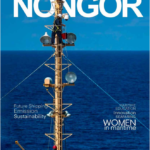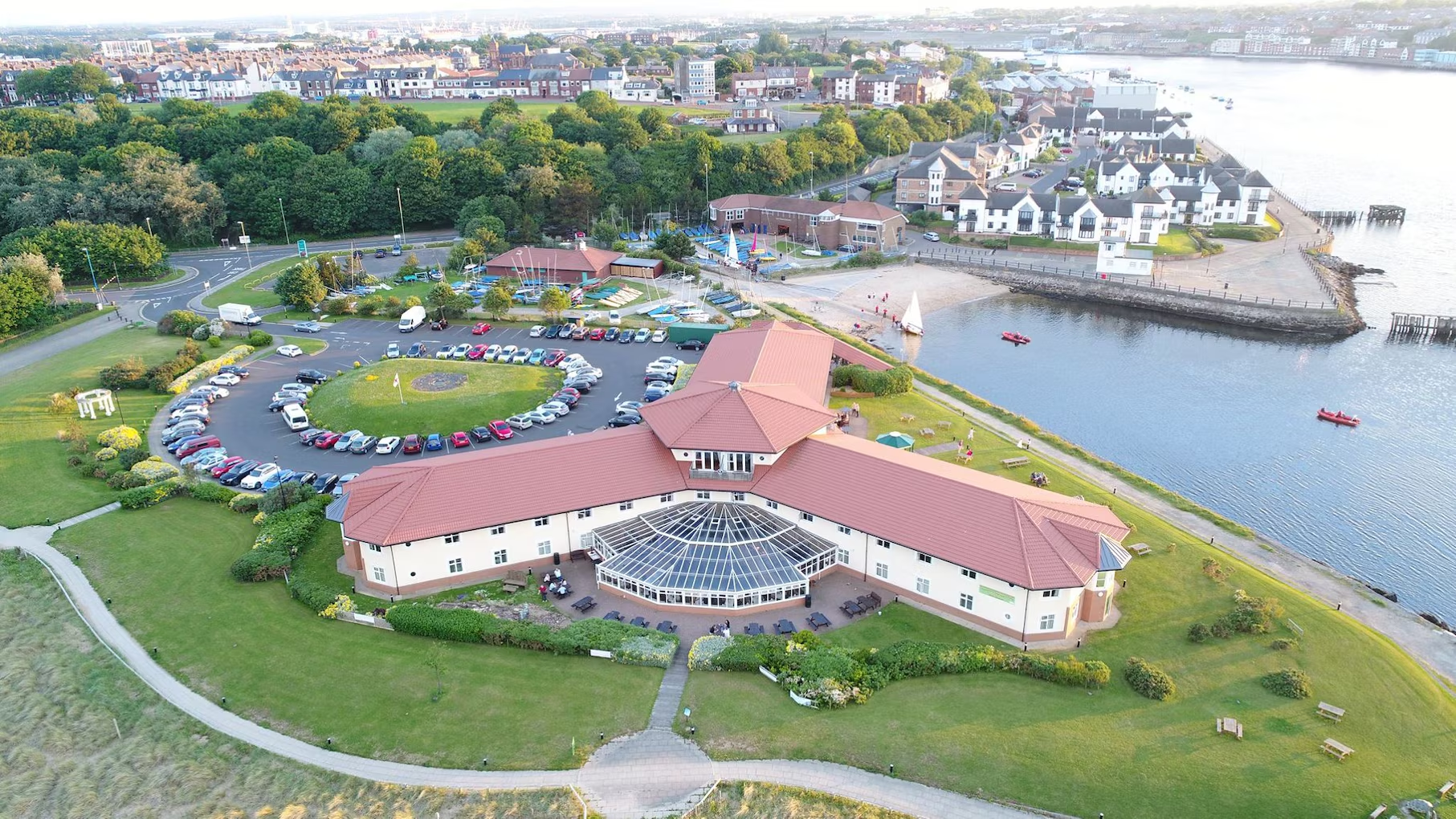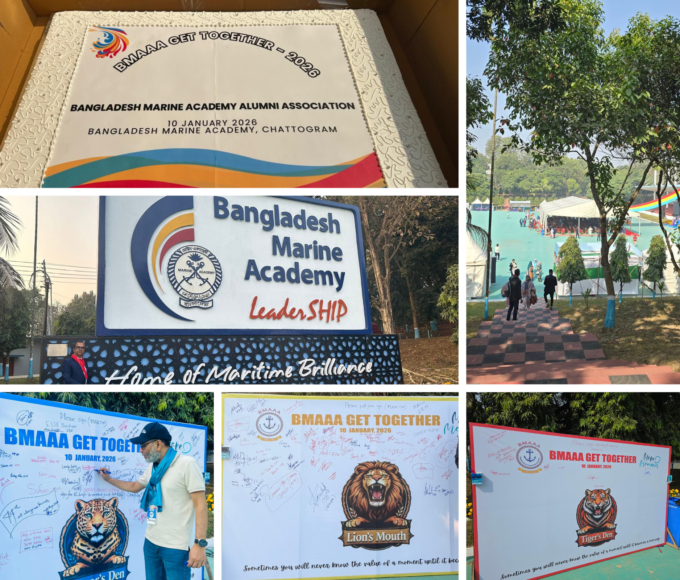Written By: Anik Khan | This article reprinted here frlom 2002 World Maritime Day publication of Department of Shipping, Dhaka.
Editor Recurring incidents of passenger vessel sinking with devastating affects of lost lives and wealth had horrified this nation over decades, the theoretical studies made and investigation reports were available but the situation deteriorated with the time. This is because we never had adequate policy, objectives & procedures i.e. A system in places for ISSA (Inland ship safety Administration). Recently a seminar was held on “Measures to improve safety in Inland Shipping” jointly arranged by NI and ANAME In that connection this is our attempt to look into the root cause of discussed issues and propose a policy for adoption of a system, which may ensure real improvements in safety of inland Shipping. During the 25th September 2002 seminar one of the speakers discussed risk management in detail but the ISM code as an instrument of risk management in shipping adopted by the IMO remained unfocused and we need only an equivalent safety management system for our inland shipping. Another speaker spoke in detail about the technical reasoning of accidents with reference to M.V. Salauddin-2 and M.V. Subha cases and did not reveal the root causes of the system failure. Following are the considerations regarding above mentioned discussion, please note we are concerned about the system (building, development, rectification and continual improvement of policy, objectives and procedures) and not interested in individuals (if the system does not work mere replacement of an individual would not eliminate our root cause of the mishap).
Design
In one case approved design was adequate. In other case approved design was inadequate due to no equivalent measures were available for IMO resolution A 562 (re: Heel due to wind moment). When IMO resolution A 562 came into existence why the matter was not considered during annual survey by the administration?
Building
This is because no transparent survey system in places. In one case vessel was not build as per approved design in other case vessel was built as per design, only when the approved design was faulty. Here, building stage monitoring failed or the vessel was modified at later dates, which means Administration monitoring failed, why?
1. No adequate technical manpower in administration, Govt. not ready to allocate more resources and employ more technical people (surveyor).
Remedy: Delegation of both building stage and administrative monitoring required. Here the job may be done through a monopolistic organization like BCS (Bangladesh Classification Society) or may be delegated to several survey companies.
In Case of single organization low level of productivity and high level of expenses may result in. In case of multiple organization unhealthy competition, under cutting of fees may reduce the quality of job or even paper sold without survey. But in every above cases a back link to be established to ensure productivity and quality, i.e. at least 50% of the shares of each recognized organization (R/O) should be hold by insurance companies willing to insure those vessels and owners to those ships. The paid up capital of an R/O should not be less than 150 lacs. R/O should have adequate technical man power from the areas of master mariner, marine chief engineer and naval architect (bachelor).
2. Incase of FG Ships PSC acts as counter agency to the administration monitoring. But in case of Inland Ships no such arrangements exits.
Remedy: If monitoring is delegated to R/O, govt. agencies may act as counter agency in different inland ports.
Maintenance and Administration:
Ships maintenance are not adequate. Administration surveyor failed to monitor ships, yet issued annual certificate, why? The equation was established between the forces of need to keep the ship running and non-availability of alternative surveyor /Certificates. And the professional compromise of the surveyor awarded him moral loss.
Remedy: Balance must be achieved between the professional and commercial pressures caused by need of running the ship continuously. When the insurance company or P&I club will have shares in survey firm, then only adequate resources may be allocated to ensure quality survey and productivity of ships, otherwise settlement of claims would be heavier for Insurance companies (alternatively P&I clubs of ships owners) and for each case premium for ship owner would increase.
Adequate Manning & Training: All inland ships are under manned and manned with unqualified persons. Why? There is acute shortage of trained people in the market; ship owner does not like to send employees for training on company’s account and employees do not like to loose their jobs for up gradation training.
All minor operational faults developed due to lack of training only. e.g.
Over loading: Shipmaster did not have the knowledge of minimum stability requirements, including initial metacentric height. Widnd heeling moment, crowding moment act, which resulted in unsafe and over loading without understanding the implications of the action taken.
Crowd and Crisis Management: Particular type of vessel always have crowd on board but the master & crew did not have a training course done on crowd management. Any moment any vessel may be in crisis but without the training on crisis management shipmaster & crew will not be able to limit the loss of life and wealth during the period of crisis.
Emergency preparedness: Without training on emergency preparedness shipmaster may not know how to go about in case of emergency. e g.
- If collision is unavoidable how to approach?
- What are the responsibility between vessel involved and vessels in the vicinity in case of a collision?
- Communication and reporting to whom and how is more effective?
- How to arrange the transfer/Rescue of the passenger in distress?
- What seamanship measures may be taken in order to limit the damage to hull, machinery & cargo?
- What environment protection measures are necessary to take? etc.
Remedy : The need of education and training in this highly technical profession must be recognized by the govt. and responsibility delegated to owners or manager for employee training (in the similar manner on ISM code regulation 6 and STCW 95 regulation 1/14)
All minor operational faults developed due to lack of training only. Adequate training must be ensured in areas of navigation. Stability and cargo operations, crowd & crisis management, operation and maintenance of fitted machinery and emergency preparedness.
Infrastructure:
Channels are not navigable and unsafe. BIWTA collects revenue from ships but unable to maintain the navigability and safety of the channels. In this case maintenance of the channels in different sectors of the country may be sub contracted to private organizations and BIWTA monitor and ensure navigability & safety of the channels, also formulate guidelines for channels maintenance. So that those private organization may be challenged in the court in case of any negligence to channel maintenance. Here as well insurance companies willing to cover inland vessels and the owners of inland vessels may be encouraged to invest in such channel maintenance organization. This may help us to achieve harmony between commercial and professional demands.
Conclusion :
Here I would like to share my views as a system auditor. As ISO or ISM auditor we look into the system not to the person. If a system works we may find everything fine in position, persons are there to play defined roles only.
For successful implementation of any system which may be a safety management like ISM or standard management system like ISO or other systems like Environment management or even financial management systems we need to have few minimum required elements : e.g.
1. A defined policy.
2. Standard objectives for deployment of the policy.
3. Procedures for Corrective Action, Preventive Action, Management Review Meetings, Document Control & Internal Audit & External Audit etc.
4. External monitoring and customer feedback to the system for continual development.
5. Commitment of the top management & resource allocation.
Now for an analogy:
Policy for ISSA may be: Safety Management for Inland Registered Ships’ operation and the protection of environment. This policy may be deployed into following objectives:
1. Safe design, building and maintenance of inland vessels.
2. Safe manning & safe operation of inland Registered (I.R.) ships.
3. Protection of life and Environment.
4. Protection of Wealth.
5. Preparedness for Emergencies.
No one can prove that results can be achieved without having a system in place, e.g. Please note if there is no code of life, no system i.e. Holy Quran for us to follow, Millions of angels may come form haven and make monitoring report which would not establish peace on the earth, But once the system is in place external monitoring is required for up keeping the system.
Norway was the first country to implement mandatory safety management system for their coastal ships after learning the lesson from passenger ship disaster.
Later on it was accepted by IMO for international shipping by IMO resolution A. 741(18) as a chapter of SOLAS convention.
A person may own several I.R. ships and if any of them involves into an accident why the owner be punished only for owning ship, which happens in our existing system.
But if a SMS in place owner has to declare the name of the person or the company who assumes the responsibility to operate the ships.
Here to be manager of ship one must be adequately equipped with professional knowledge & competence, human resource, financial knowledge & resources and answerable to administration.
And if we have such a system in place Inshallah we would be able to achieve the results.
Now regarding the monitoring by administration, Govt. may employ a pool of professional surveyors and carryout the job, which is not suitable for three reason:
1. Govt. does not have much funds or not ready to employ more people.
2. If govt. does the monitoring, there is no counter agency to act.
3. Corruption and inactivity may cause the system to fail, as govt. has such in built limitations.
But still it’s matter of govt. policy to decide on. Alternatively, the monitoring may be delegated to private organizations and govt. to monitor random like PSC in FG ships and also monitor those private agnates. This option is not suitable for two reason:
1. Compromise for commercial pressure.
2. Minor low level corruption.
And a further alternative is to delegate it to a siingle semi public organization like BCS. Which seems to be the most suitable option in view the future of BD as a maritime nation,
But low level dishonesty and immobility may be here our suggestion is an imported slowly are and cause the system to fail insurance law must be made by which all I.R. ships shall be classed under BCS, and maintain a insurance coverage from a insurance company having investment in BCS. Insurance companies & ship owners to hold shares in BCS.
As the matter of premium and payment of claims are involved there will be a commercial back pressure on BCS by the share hold BTS to ensure the safety and quality at all times with the continuous advancement of Technology.
Now our prime task would be undertaking a project to form the BCS, with participation of the shipping professionals, ship owners & insurance companies etc. Here the nonprofit making & welfare professional body Noah Foundation has done some homework & ready to act as facilitator if asked by the government.
The second task is to get the pending insurance law passed quickly & correctly which is lying in the office of the chief controller of insurance for long time.
Adoption of correct policy, Deployment of the policy into the SMART objectives and development of adequate procedures for implementation of a good system would only lead us to enter into a safety culture stated by IMO.
This article was published in year 2002 and later in line with our proposal the Inland Shipping Ordinance (ISO1976) was amended by the National Parliament to allow local classification societies to act on behalf of govt. to conduct the safety survey functions. Unfortunately this most essential amendment yet to be implemented. As every year more people are dying and public interest is ignored we strongly urge the Government to permit function of loal classification societies to act as soon as possible.
 Capt. M Rezaul Karim Chowdhury, PhD, Editor, BTE
Capt. M Rezaul Karim Chowdhury, PhD, Editor, BTE
——————————————————-
Courtesy: Bay Trade Express – The country’s first maritime newspaper. June 24, 2014 Posted In: Editorial Main
http://baytradeexpress.com/a-policy-proposal-for-enhancing-maritime-safety-in-waterways-of-bangladesh/
















congratulation to you.
long live bmmoa